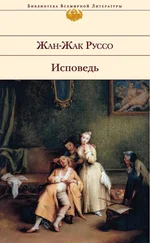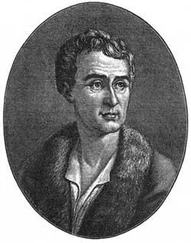Жан-Жак Руссо - The Confessions of Jean Jacques Rousseau — Volume 12
Здесь есть возможность читать онлайн «Жан-Жак Руссо - The Confessions of Jean Jacques Rousseau — Volume 12» — ознакомительный отрывок электронной книги совершенно бесплатно, а после прочтения отрывка купить полную версию. В некоторых случаях можно слушать аудио, скачать через торрент в формате fb2 и присутствует краткое содержание. Жанр: Биографии и Мемуары, literature_18, foreign_antique, на английском языке. Описание произведения, (предисловие) а так же отзывы посетителей доступны на портале библиотеки ЛибКат.
- Название:The Confessions of Jean Jacques Rousseau — Volume 12
- Автор:
- Жанр:
- Год:неизвестен
- ISBN:нет данных
- Рейтинг книги:3 / 5. Голосов: 1
-
Избранное:Добавить в избранное
- Отзывы:
-
Ваша оценка:
- 60
- 1
- 2
- 3
- 4
- 5
The Confessions of Jean Jacques Rousseau — Volume 12: краткое содержание, описание и аннотация
Предлагаем к чтению аннотацию, описание, краткое содержание или предисловие (зависит от того, что написал сам автор книги «The Confessions of Jean Jacques Rousseau — Volume 12»). Если вы не нашли необходимую информацию о книге — напишите в комментариях, мы постараемся отыскать её.
The Confessions of Jean Jacques Rousseau — Volume 12 — читать онлайн ознакомительный отрывок
Ниже представлен текст книги, разбитый по страницам. Система сохранения места последней прочитанной страницы, позволяет с удобством читать онлайн бесплатно книгу «The Confessions of Jean Jacques Rousseau — Volume 12», без необходимости каждый раз заново искать на чём Вы остановились. Поставьте закладку, и сможете в любой момент перейти на страницу, на которой закончили чтение.
Интервал:
Закладка:
M. du Perou was an American, son to a commandant of Surinam, whose successor, M. le Chambrier, of Neuchatel, married his widow. Left a widow a second time, she came with her son to live in the country of her second husband.
Du Perou, an only son, very rich, and tenderly beloved by his mother, had been carefully brought up, and his education was not lost upon him. He had acquired much knowledge, a taste for the arts, and piqued himself upon his having cultivated his rational faculty: his Dutch appearance, yellow complexion, and silent and close disposition, favored this opinion. Although young, he was already deaf and gouty. This rendered his motions deliberate and very grave, and although he was fond of disputing, he in general spoke but little because his hearing was bad. I was struck with his exterior, and said to myself, this is a thinker, a man of wisdom, such a one as anybody would be happy to have for a friend. He frequently addressed himself to me without paying the least compliment, and this strengthened the favorable opinion I had already formed of him. He said but little to me of myself or my books, and still less of himself; he was not destitute of ideas, and what he said was just. This justness and equality attracted my regard. He had neither the elevation of mind, nor the discrimination of the lord marshal, but he had all his simplicity: this was still representing him in something. I did not become infatuated with him, but he acquired my attachment from esteem; and by degrees this esteem led to friendship, and I totally forgot the objection I made to the Baron Holbach: that he was too rich.
For a long time I saw but little of Du Perou, because I did not go to Neuchatel, and he came but once a year to the mountain of Colonel Pury. Why did I not go to Neuchatel? This proceeded from a childishness upon which I must not be silent.
Although protected by the King of Prussia and the lord marshal, while I avoided persecution in my asylum, I did not avoid the murmurs of the public, of municipal magistrates and ministers. After what had happened in France it became fashionable to insult me; these people would have been afraid to seem to disapprove of what my persecutors had done by not imitating them. The 'classe' of Neuchatel, that is, the ministers of that city, gave the impulse, by endeavoring to move the council of state against me. This attempt not having succeeded, the ministers addressed themselves to the municipal magistrate, who immediately prohibited my book, treating me on all occasions with but little civility, and saying, that had I wished to reside in the city I should not have been suffered to do it. They filled their Mercury with absurdities and the most stupid hypocrisy, which, although, it makes every man of sense laugh, animated the people against me. This, however, did not prevent them from setting forth that I ought to be very grateful for their permitting me to live at Motiers, where they had no authority; they would willingly have measured me the air by the pint, provided I had paid for it a dear price. They would have it that I was obliged to them for the protection the king granted me in spite of the efforts they incessantly made to deprive me of it. Finally, failing of success, after having done me all the injury they could, and defamed me to the utmost of their power, they made a merit of their impotence, by boasting of their goodness in suffering me to stay in their country. I ought to have laughed at their vain efforts, but I was foolish enough to be vexed at them, and had the weakness to be unwilling to go to Neuchatel, to which I yielded for almost two years, as if it was not doing too much honor to such wretches, to pay attention to their proceedings, which, good or bad, could not be imputed to them, because they never act but from a foreign impulse. Besides, minds without sense or knowledge, whose objects of esteem are influence, power and money, and far from imagining even that some respect is due to talents, and that it is dishonorable to injure and insult them.
A certain mayor of a village, who from sundry malversations had been deprived of his office, said to the lieutenant of Val de Travers, the husband of Isabella: "I am told this Rousseau has great wit,—bring him to me that I may see whether he has or not." The disapprobation of such a man ought certainly to have no effect upon those on whom it falls.
After the treatment I had received at Paris, Geneva, Berne, and even at Neuchatel, I expected no favor from the pastor of this place. I had, however, been recommended to him by Madam Boy de la Tour, and he had given me a good reception; but in that country where every new-comer is indiscriminately flattered, civilities signify but little. Yet, after my solemn union with the reformed church, and living in a Protestant country, I could not, without failing in my engagements, as well as in the duty of a citizen, neglect the public profession of the religion into which I had entered; I therefore attended divine service. On the other hand, had I gone to the holy table, I was afraid of exposing myself to a refusal, and it was by no means probable, that after the tumult excited at Geneva by the council, and at Neuchatel by the classe (the ministers), he would, without difficulty administer to me the sacrament in his church. The time of communion approaching, I wrote to M. de Montmollin, the minister, to prove to him my desire of communicating, and declaring myself heartily united to the Protestant church; I also told him, in order to avoid disputing upon articles of faith, that I would not hearken to any particular explanation of the point of doctrine. After taking these steps I made myself easy, not doubting but M. de Montmollin would refuse to admit me without the preliminary discussion to which I refused to consent, and that in this manner everything would be at an end without any fault of mine. I was deceived: when I least expected anything of the kind, M. de Montmollin came to declare to me not only that he admitted me to the communion under the condition which I had proposed, but that he and the elders thought themselves much honored by my being one of their flock. I never in my whole life felt greater surprise or received from it more consolation. Living always alone and unconnected, appeared to me a melancholy destiny, especially in adversity. In the midst of so many proscriptions and persecutions, I found it extremely agreeable to be able to say to myself: I am at least amongst my brethren; and I went to the communion with an emotion of heart, and my eyes suffused with tears of tenderness, which perhaps were the most agreeable preparation to Him to whose table I was drawing near.
Конец ознакомительного фрагмента.
Текст предоставлен ООО «ЛитРес».
Прочитайте эту книгу целиком, купив полную легальную версию на ЛитРес.
Безопасно оплатить книгу можно банковской картой Visa, MasterCard, Maestro, со счета мобильного телефона, с платежного терминала, в салоне МТС или Связной, через PayPal, WebMoney, Яндекс.Деньги, QIWI Кошелек, бонусными картами или другим удобным Вам способом.
Интервал:
Закладка:
Похожие книги на «The Confessions of Jean Jacques Rousseau — Volume 12»
Представляем Вашему вниманию похожие книги на «The Confessions of Jean Jacques Rousseau — Volume 12» списком для выбора. Мы отобрали схожую по названию и смыслу литературу в надежде предоставить читателям больше вариантов отыскать новые, интересные, ещё непрочитанные произведения.
Обсуждение, отзывы о книге «The Confessions of Jean Jacques Rousseau — Volume 12» и просто собственные мнения читателей. Оставьте ваши комментарии, напишите, что Вы думаете о произведении, его смысле или главных героях. Укажите что конкретно понравилось, а что нет, и почему Вы так считаете.











